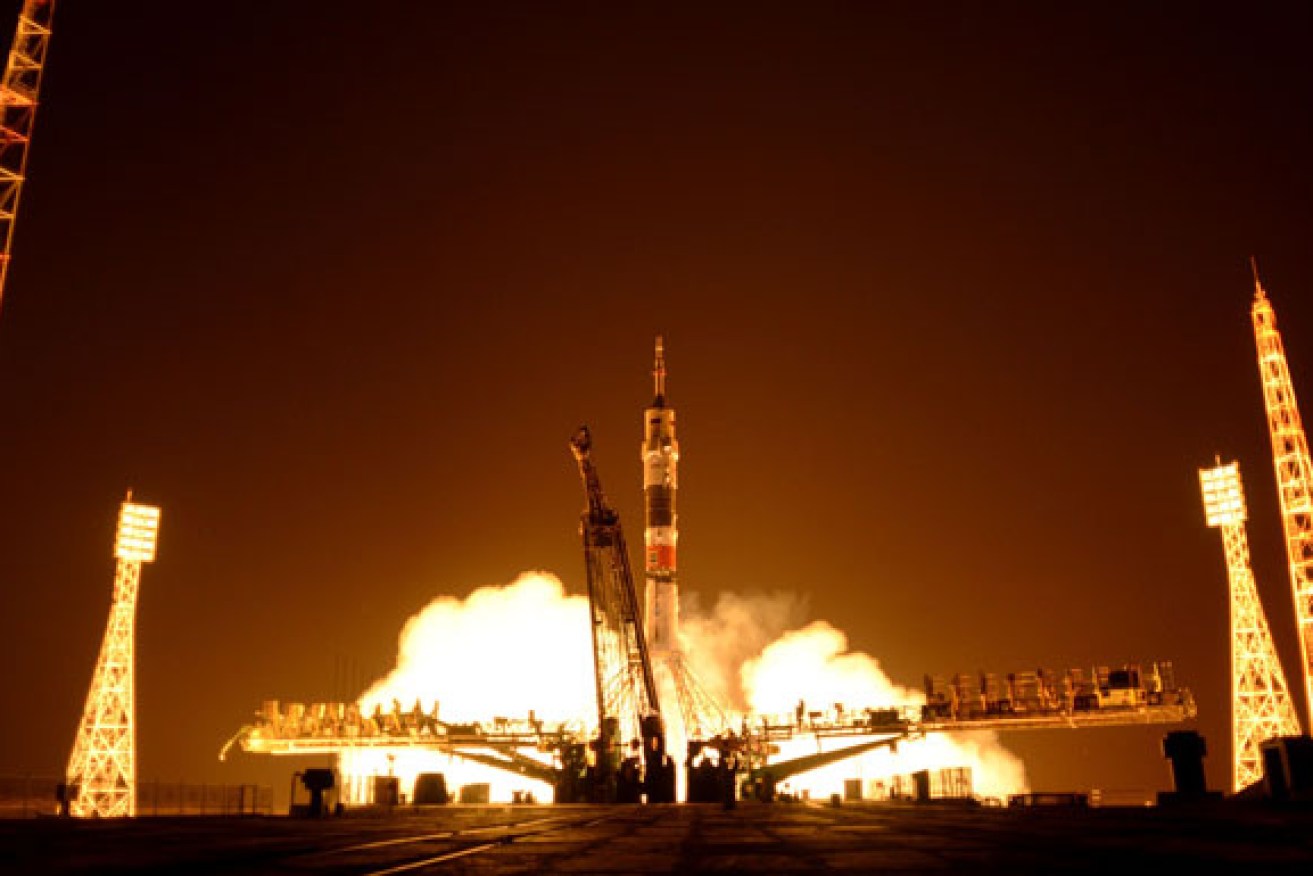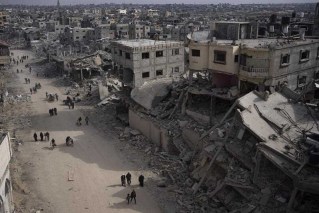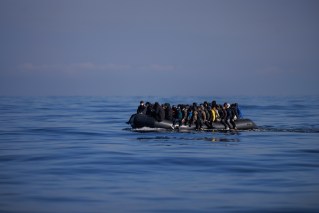Space station crew land safely in Kazakhstan

AAP
A three-man multinational crew of astronauts has returned to Earth aboard a Russian Soyuz spacecraft after 165 days working together at the International Space Station.
ISS commander, Russia’s Maxim Surayev, his American colleague Reid Wiseman and Germany’s Alexander Gerst from the European Space Agency touched down about 11.30am Monday (AEST).
• Looking back: astonishing pictures of the Berlin Wall
• List ranks the world’s most miserable countries
The three men smiled broadly from reclining chairs as medical personnel tended to them amid patches of snow on the barren steppe just northeast of Arkalyk, Kazakhstan, where they landed.
Surayev flashed a V for victory sign, while Wiseman pumped his fist as they waited to regain their land legs after nearly half a year of weightlessness.
“Everything was in the spirit of co-operation, so I think that everybody needs to learn and follow the example of the ISS crew members,” Surayev said.
“Let’s try to live together side by side. This is the most important thing.”

Russia’s Soyuz TMA-13M spacecraft carrying the International Space Station (ISS) crew blasts off. Photo: AAP
While in space, the crew travelled more than 112 million kilometres, NASA said.
The “bullseye” touchdown was executed amid low clouds and fog “following a flawless descent back into the atmosphere,” according to NASA TV.
Early-morning temperatures in Kazakhstan were minus 5 degrees Celsius, mission commentator Rob Navias said on the broadcast of the landing.
The spacecraft was pulled onto its side by its parachute upon arrival, which NASA TV added was not uncommon.
Another three-person crew remains on the ISS to “continue research and maintenance aboard the station” and will be joined by three more astronauts who launch from Kazakhstan on November 23, NASA said.
NASA lost its ability to reach the space station when the shuttle program ended in 2011 after 30 years.
The US space agency has helped fund private companies in a push to restore US access to the ISS.
In the meantime, the world’s astronauts must rely on Russia’s Soyuz spacecraft to get to the ISS and back, at a cost of $US70 million ($A75.74 million) per seat.








